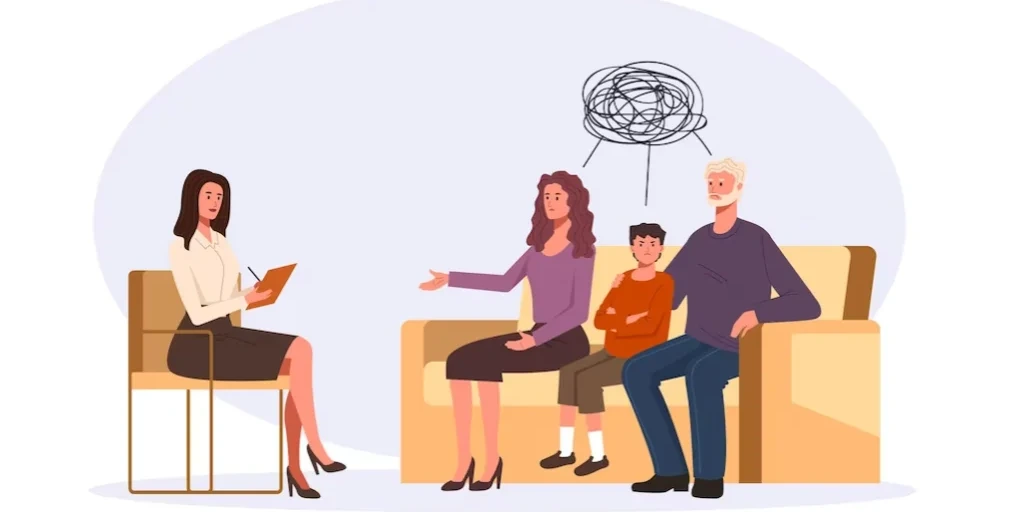24/7 Helpline:
(866) 899-221924/7 Helpline:
(866) 899-2219
Learn more about Morphine Rehab centers in Huntington Beach
Morphine Rehab in Other Cities

Other Insurance Options

Absolute Total Care

GEHA

American Behavioral

Sliding scale payment assistance

Meritain

WellPoint

Health Partners

Group Health Incorporated

UnitedHealth Group

Magellan Health

United Health Care

Cigna

BHS | Behavioral Health Systems

Optima

PHCS Network

Anthem

Health Choice

Excellus

Optum

AllWell

Hired Power
Hired Power is an outpatient rehab located in Huntington Beach, CA. Hired Power specializes in the t...

New Life Spirit Recovery
New Life Spirit Recovery is a private rehab located in Huntington Beach, California. New Life Spirit...

Wavelengths Recovery
Wavelengths Recovery is a drug and alcohol rehab that supports adults and adolescents in the Hunting...

Surf City Recovery
Surf City Recovery is a drug and alcohol rehab located in Huntington Beach, California. They provide...

The Well Recovery Center
The Well Recovery Center - Lake Street is a residential treatment center that provides opiate and al...

Coastline – Women’s Program
Coastline–Women’s Program is a luxury, 12 step-focused drug and alcohol rehab for adult women in Hun...

Beach City Treatment
Beach City Treatment offers inpatient detox services for individuals with alcohol and/or substance a...

Coastline Behavioral Health
Coastline Behavioral Health is a drug and alcohol rehab located in Huntington Beach, California. The...

Orange County Recovery
Orange County Recovery is a substance abuse and mental health facility with over 20 years of experie...

Five Points Men’s Sober Living
The Cottages offers a safe transitional sober living for men who are in their path of sobriety. Atte...

Anchored Tides Recovery
Anchored Tides Recovery is a private rehab located in Huntington Beach, California. Anchored Tides R...

PACE Recovery Center – 16th Street
PACE Recovery Center - 16th Street offers intensive outpatient and transitional living programs for ...

Orange County Recovery Services
Orange County Recovery Services offers intensive outpatient and outpatient treatment for individuals...


































Crescent Moon Recovery
Crescent Moon Recovery is a private rehab located in Huntington Beach, California. Crescent Moon Rec...

Seacliff Recovery Center – 7th Street
Seacliff Recovery Center - 7th Street offers outpatient and sober living house services for individu...

Pace Recovery Center
Pace Recovery Center is a private rehab located in Huntington Beach, California. Pace Recovery Cente...

Southern CA Alcohol and Drug Program – Outpatient
Southern CA Alcohol and Drug Program – Outpatient is a private rehab located in Huntington Beach, Ca...

Team Intervention
Team Intervention is a private rehab located in Huntington Beach, California. Team Intervention spec...

Center for Treatment of Addiction
Center for Treatment of Addiction is a private rehab located in Huntington Beach, California. Center...

Turning Pages Recovery
Turning Pages Recovery is a private rehab located in Huntington Beach, California. Turning Pages Rec...

Jack Grisham’s Center for Change
Jack Grisham’s Center for Change is a private rehab located in Huntington Beach, California. Jack Gr...

Surf City Detox
Surf City Detox is a private rehab located in Huntington Beach, California. Surf City Detox speciali...

Sober Living Huntington Beach
Sober Living Huntington Beach is a private rehab located in Huntington Beach, California. Sober Livi...

Orange County Detox Services
Orange County Detox Services is a private rehab located in Huntington Beach, California. Orange Coun...

Broadway Treatment Center
Broadway Treatment Center provides a long-term approach to substance abuse treatment. They offer a m...

Seashore Treatment Centers – Drug Rehab
Seashore Treatment Centers – Drug Rehab is a private rehab located in Huntington Beach, California. ...

Simple Recovery – Viva Circle
Simple Recovery - Viva Circle offers inpatient services for individuals with alcohol and/or substanc...

Simple Recovery – Paisley Lane
Simple Recovery - Paisley Lane offers inpatient and outpatient services for individuals with alcohol...

Seacliff Recovery Center – Beach Boulevard
Seacliff Recovery Center - Beach Boulevard offers outpatient and sober living house services for ind...

Detox and Treatment
Detox and Treatment offer a full range of treatment for those individuals struggling with substance ...

California Pet Friendly Drug Rehab
California Pet-Friendly Drug Rehab is a pet friendly substance abuse and co-occurring disorders trea...

Aspire Recovery
Aspire Recovery is a substance abuse and co-occurring mental health treatment to individuals in need...

The Livingood Center
The Livingood Center is a private rehab located in Huntington Beach, California. The Livingood Cente...

R&R Recovery
R&R Recovery is a traditional rehab located in Huntington Beach, CA. R&R Recovery specializes in the...

North Treatment Center
North Treatment Center is backed by the understanding that addiction affects every person involved. ...










